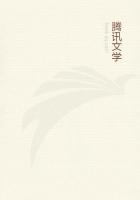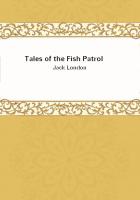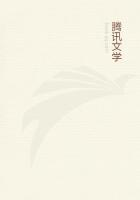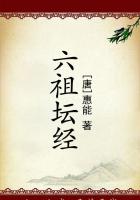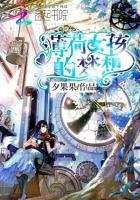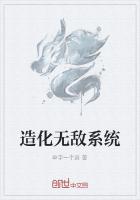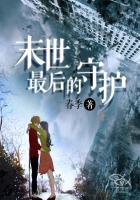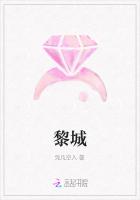Hesiod somewhat differs from this view by ****** Chaos absolutely first of all things, followed by "wide-bosomed Earth,"Tartarus and Eros (love). Chaos unaided produced Erebus and Night;the children of Night and Erebus are Aether and Day. Earth produced Heaven, who then became her own lover, and to Heaven she bore Oceanus, and the Titans, Coeeus and Crius, Hyperion and Iapetus, Thea and Rhea, Themis, Mnemosyne, Phoebe, Tethys, "and youngest after these was born Cronus of crooked counsel, the most dreadful of her children, who ever detested his puissant sire,"Heaven. There were other sons of Earth and Heaven peculiarly hateful to their father, and these Uranus used to hide from the light in a hollow of Gaea. Both they and Gaea resented this treatment, and the Titans, like "the children of Heaven and Earth,"in the New Zealand poem, "sought to discern the difference between light and darkness". Gaea (unlike Earth in the New Zealand myth, for there she is purely passive), conspired with her children, produced iron, and asked her sons to avenge their wrongs. Fear fell upon all of them save Cronus, who (like Tane Mahuta in the Maori poem) determined to end the embraces of Earth and Heaven.
But while the New Zealand, like the Indo-Aryan myth, conceives of Earth and Heaven as two beings who have never previously been sundered at all, Hesiod makes Heaven amorously approach his spouse from a distance. This was the moment for Cronus, who stretched out his hand armed with the sickle of iron, and mutilated Uranus.
As in so many savage myths, the blood of the wounded god fallen on the ground produced strange creatures, nymphs of the ash-tree, giants and furies. As in the Maori myth, one of the children of Heaven stood apart and did not consent to the deed. This was Oceanus in Greece, and in New Zealand it was Tawhiri Matea, the wind, "who arose and followed his father, Heaven, and remained with him in the open spaces of the sky". Uranus now predicted that there would come a day of vengeance for the evil deed of Cronus, and so ends the dynasty of Uranus.
Theog., 45.
Ibid., 116.
Ibid., 155.
Ibid., 166.
Muir, v. 23, quoting Aitareya Brahmana, iv. 27: "These two worlds were once joined; subsequently they separated".
Theog., 175-185.
Apollod., i, 15.
Theog., 209.
This story was one of the great stumbling-blocks of orthodox Greece. It was the tale that Plato said should be told, if at all, only to a few in a mystery, after the sacrifice of some rare and scarcely obtainable animal. Even among the Maoris, the conduct of the children who severed their father and mother is regarded as a singular instance of iniquity, and is told to children as a moral warning, an example to be condemned. In Greece, on the other hand, unless we are to take the Euthyphro as wholly ironical, some of the pious justified their conduct by the example of Zeus. Euthyphro quotes this example when he is about to prosecute his own father, for which act, he says, "Men are angry with ME; so inconsistently do they talk when I am concerned and when the gods are concerned".
But in Greek THE TALE HAS NO MEANING. It has been allegorised in various ways, and Lafitau fancied that it was a distorted form of the Biblical account of the origin of sin. In Maori the legend is perfectly intelligible. Heaven and earth were conceived of (like everything else), as beings with human parts and passions, linked in an endless embrace which crushed and darkened their children. It became necessary to separate them, and this feat was achieved not without pain. "Then wailed the Heaven, and exclaimed the Earth, 'Wherefore this murder? Why this great sin? Why separate us?' But what cared Tane? Upwards he sent one and downwards the other. He cruelly severed the sinews which united Heaven and Earth." The Greek myth too, contemplated earth and heaven as beings corporeally united, and heaven as a malignant power that concealed his children in darkness.
Euthyphro, 6.
Taylor, New Zealand, 119.
But while the conception of heaven and earth as parents of living things remains perfectly intelligible in one sense, the vivid personification which regarded them as creatures with human parts and passions had ceased to be intelligible in Greece before the times of the earliest philosophers. The old physical conception of the pair became a metaphor, and the account of their rending asunder by their children lost all significance, and seemed to be an abominable and unintelligible myth. When examined in the light of the New Zealand story, and of the fact that early peoples do regard all phenomena as human beings, with physical attributes like those of men, the legend of Cronus, and Uranus, and Gaea ceases to be a mystery. It is, at bottom, a savage explanation (as in the Samoan story) of the separation of earth and heaven, an explanation which could only have occurred to people in a state of mind which civilisation has forgotten.
The next generation of Hesiodic gods (if gods we are to call the members of this race of non-natural men) was not more fortunate than the first in its family relations.
Cronus wedded his sister, Rhea, and begat Demeter, Hera, Hades, Poseidon, and the youngest, Zeus. "And mighty Cronus swallowed down each of them, each that came to their mother's knees from her holy womb, with this intent that none other of the proud sons of heaven should hold his kingly sway among the immortals. Heaven and Earth had warned him that he too should fall through his children.
Wherefore he kept no vain watch, but spied and swallowed down each of his offspring, while grief immitigable took possession of Rhea." Rhea, being about to become the mother of Zeus, took counsel with Uranus and Gaea. By their advice she went to Crete, where Zeus was born, and, in place of the child, she presented to Cronus a huge stone swathed in swaddling bands. This he swallowed, and was easy in his mind. Zeus grew up, and by some means, suggested by Gaea, compelled Zeus to disgorge all his offspring.

